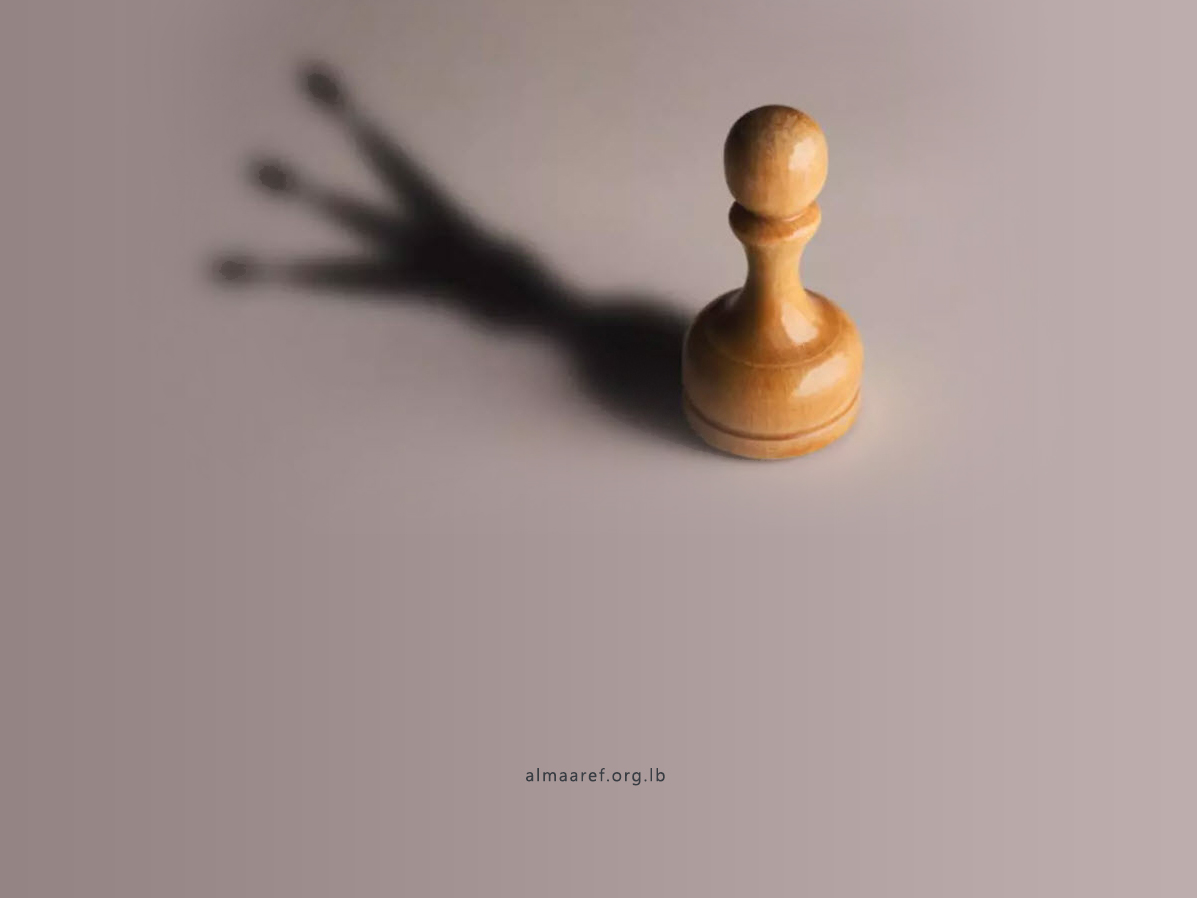Man by nature has a driving desire to achieve success and happiness in this life. All his efforts and struggles in the day to day life is basically aimed at acquiring these two things.
However, inspite of accumulating treasures of wealth and fame, man continues to find himself deprived of true success and happiness in this world. Why is this so?
The reason is simple. Man searches for success and happiness in material gains when it actually can only be found in his own soul. If the soul is contented, it supplies ease and comfort to the mind hence bringing for man true success and happiness.
Just like the physical body, Man's soul too has its own sickness. So long as he is free and secure from the sickness of his soul, he is successful and happy. The moment he falls victim to one of them, hid decline begins. He eventually loses both.
Pride (Kibr), being one of the major sickness of the soul, is not only an obstacle on Man's path to success and happiness but is also destructive to his nature. In other words, when Pride develops in Man, there is a risk that he may cross the boundary of his own nature to prove his supremacy. Unless controlled and prevented, he can harm himself as well as cause extensive harm to those around him and to society in general. History is full of such skeletons.
I have humbly attempted to discuss Pride as the cause of grief and not supremacy as many would consider. In the light of the Qur'anic verses and Hadith, I have briefly tried to explain the meaning of Pride, its reason in Man, its consequences and eventually remedies for getting rid of this dangerous sickness. I sincerely hope that it would be of benefit to all especially the youth who are my intended audience.
I also wish to extend my sincere gratitude to all the brothers who have encouraged and extended moral support to me in the undertaking of this task. I am especially indebted to Mulla Mohamed Kassamali, Brother Murtaza A.M. Jaffer and Brother Zaffer Datoo for their time and support in ensuring the success of this booklet.
May Almighty Allah reward them all in both the worlds and accept whatever little we manage to do in His right path. Amin.
1- What is Kibr
Kibr means pride - considering oneself better and superior than others. It is the source of many evils and is known to be the main cause of hatred and disunity in society. It is also a major sin.
Following are the verses from the Holy Quran and narrations from Ma’soomeen (A.S.) in which the proud ones have been condemned.
FROM THE HOLY QURAN
1- ﴾And on the day of resurrection you shall see those who lied against Allah; their faces shall be blackened. Is there not in hell an abode for the proud?﴿1
2- ﴾It shall be said: Enter the gates of Hell to abide therein; so evil is the abode of the proud﴿2
3- ﴾Thus does Allah set a seal over the heart of every proud, haughty one.﴿3
FROM THE NARRATIONS
Imam Jaffer as Sadiq (A.S.) has said:
"Indeed in Hell there is a valley for the proud known as SAQAR. It complained to Almighty Allah of the intense heat within it and sought permission from Him to breath out. (On being granted ) it breathed and therefore burnt Hell itself"4 .
It is also reported from the same Imam (A.S.):
"Indeed the proud (on the day of resurrection) will be turned into accounting (others)."5
1- PRIDE IS FOR ALLAH, THE ALMIGHTY
It should be borne in mind that pride is one of the qualities of Almighty Allah, the Creator and Master of the Universe and He alone deserves the right to be proud. This is so because He, Almighty Allah, is the Highest and Greatest in all respects.
In the Holy Quran, Allah (s.w.t.) says:
﴾And He has all pride in the Heavens and the earth.﴿6
In one of his sermons, Imam Ali (A.S.) has said:
"Praise be to Allah who wore (the dress of) honor and pride and chose them both for Himself giving not to His creatures"
And then Imam continues:
"And Allah (s.w.t.) has cursed those of His servants who attempt to quarrel with Him over this quality (honor and pride)"
Elsewhere in the same sermon, mentioning the punishment for the proud, Imam Ali (A.S.) says:
"Nay! Almighty Allah cannot give entry into paradise to a man for the same reason (pride), (because of which) he threw out from it an angel."
Iblees, although a jinn was considered as an angel due to his years of worship. He was thrown out of paradise and subjected to an everlasting curse, when he refused to obey the command of Almighty Allah to prostrate before Adam (A.S.)
Imam Ali (A.S.) explains that after years of worship, if an angel could be thrown out of paradise due to arrogance and pride, how can Almighty Allah allow someone else who possess the same attributes to enter Heaven?
3- INCIDENT OF PROPHET YUSUF (A.S.)
It has been reported that when Prophet Yusuf (A.S.) became the king of Egypt, his father, Prophet Ya’qoob (A.S.) decided to meet him. When he was still on his way to Egypt, Prophet Yusuf (A.S.) was informed about his father’s journey. He therefore mounted his horse and immediately left to receive him.
However, when he reached the place where his father was, Prophet Yusuf (A.S.) did not dismount out of respect for his father but remained seated on his horse. This act although unintentional and of an infallible Prophet, was frowned upon by Allah.
Angel Jibra’el was sent to inform Prophet Yusuf (A.S.) about Allah’s displeasure and that as a result of such a mistake, Allah (s.w.t.) would discontinue Prophethood in the offsprings of Prophet Yusuf (A.S.)
Here, it is interesting to note that Almighty Allah does not only abhor pride in men, but also dislikes actions which resemble it. To Him whether the action is committed by an infallible Prophet or an ordinary man, it is not tolerable for surely Pride belongs to Him alone.
Imam Muhammad al-Baqir (A.S.) has said:
"Pride is the veil of Allah, and the proud quarrels with Allah for His veil"
In other words, pride is a quality of Almighty Allah alone. Whoever is proud other than Him does not deserve and is therefore at war with Allah (s.w.t.)
4- REASON FOR KIBR IN MAN
There are many reasons for pride in man, but as a whole, the root cause of it is the feeling of self-humiliation and an inferiority complex in man. Therefore, one can count pride as a reaction, a cover up for a sense of insecurity and inferiority.
The argument which Iblees brought up when command to prostrate before Adam (A.S.) was based on this insecurity.
"How could one, who was created from fire, prostrate before someone created from clay ?", asked Iblees.
Iblees, who thought himself a superior creation than Adam, refused to recognize the command of his Creator. His response arose as a reaction to his loss of self-esteem. This reaction of Iblees, made him lose the prestige he had been enjoying amongst the angels and he was thereafter banished with an everlasting curse from Allah (s.w.t.)
The following verse of the Holy Quran describes what made Iblees become proud.
﴾He said: I am not one to prostrate in obeisance to man (for) You created him of the essence of black mud fashioned in shape.﴿7
And was therefore commanded as thus:
﴾Said He: Get down hence for it does not befit you to behave proudly therein. Get out; verily you are of the despised ones.﴿8
The Holy Prophet (s.a.w.) has said:
"There is no man who is proud or haughty except with (the feeling of) humiliation which he finds ins inner self."
5- STORY OF A KING
The story of a king is an instructive one. He was in love with a particular perfume because of its strong and wonderful fragrance. It is said that whenever he held court or left his place, the king used to wear only this perfume.
Once, as he was applying the perfume on his clothes, a drop fell on the ground. Unable to resist, the king involuntarily touched the fallen drop and wiped it on his clothes only to realize the presence of his minister who was watching him in amazement. Guilty and embarrassed, the king ordered his minister to construct a pool of the same perfume in his palace. The minister smiled and remarked:
"Your majesty, what goes away with a drop cannot be replaced by constructing a pool."
The minister was implying that prestige and honor lost for a drop cannot be brought back by constructing a pool. The moral of the story is simple - the king ordered the minister to construct a pool of perfume so as to cover the sense of humiliation he left upon realizing that it does not benefit a king to act in a miserly fashion. His pride could not rake the humiliation.
In conclusion, the victims of pride are those who normally suffer from the above mentioned complex. It is immaterial whether they seek recognition by attracting attention to themselves or even to cover up their faults. The problem is of a lack of self-esteem.
6- TYPES OF KIBR
Basically, Kibr is of three types:
1- Kibr on Allah (s.w.t.)
2- Kibr on the Holy Prophet (s.a.w.) and the Imams (A.S.)
3- Kibr on people.
Each of the above has been discussed as follows:
1- KIBR ON ALLAH
There are various acts of man which can prove Kibr against Allah (s.w.t.).
An ignorant person always considers himself to be powerful enough in managing things his way. He thinks that whatever he does is a result purely of his own efforts and does not stop to consider himself nothing more than a weak creature of Allah (s.w.t.).
One would often hear such characters praising themselves and boasting that "I did so and so" or "I will do so and so." Referring to them in the Holy Quran, Almighty Allah says:
﴾There is naught in their breasts but (a vain desire) to become great, which they shall attain not﴿9
When Pride develops in man, a stage comes whereby he may also declare himself as God or even mightier than Him. The incidents of Firoun and Namrood are the best examples.
Firoun claimed to the children of Israel saying:
﴾I am your Lord, the Greatest.﴿10
And justified his lordship saying:
﴾Is not the land of Egypt mine and these rivers flowing from my beneath?﴿11
Firoun, out of sheer arrogance also said:
﴾I have not known for you a Lord other than myself.﴿12
As for Namrood he claimed to be a giver of life and death when he said:
﴾I give life and cause death.﴿13
To prove himself right he ordered two men to be brought before him. He killed one and spared the life of the other.
DISOBEDIENCE TO ALLAH (s.w.t.) IS KIBR
Disobedience to Allah (s.w.t.) i.e. disobeying His commandments or discontinuing His worship is also a kind of Kibr (Pride). However; people who disobey Allah (s.w.t.) fall in one of the following two categories:
a- those who disobey the commands of Allah (s.w.t.) and do not fulfill their obligation intentionally.
Such kind of people are not only proud but also considered as "Kafirs" i.e. disbelievers.
Referring to Iblees who went against the command of Allah (s.w.t.) and did not prostrate before Adam (A.S.), Allah (s.w.t.) says:
﴾He (Shaytan) refused and was proud, and he was one of the Unbelievers﴿14
b- Those who disobey the commands of Allah (s.w.t.) and do not fulfill their obligation unintentionally.
Such people do not deny or refute the commands of Allah (s.w.t.) but sin against Him, either due to ignorance or are otherwise captives of their desires and lusts.
This category cannot be branded as disbelievers but are sinners. Imam Ali Bin Hussein (A.S.) says in his Du’a well known as "Du’a-e-Abi Hamza Thimali":
"O my Lord! I did not defy You when I disobeyed You wanting to reject Your Lordship. I did neither undermine Your command, and nor disregard Your threats and nor challenge Your punishment. But it was a mistake which occurred accidentally. I let myself be seduced (by shaytan) and my lust overcame me......"
TO AVOID SUPPLICATION (DU’A) IS KIBR
There are people who do not supplicate to Allah (s.w.t.). The reason could be either ignorance about the importance of supplication or a sense of sufficiency with their material benefits and thus finding it unnecessary to supplicate.
It should always be that however much a person considers himself to be fulfilled, he still continuously requires the favors of Allah (s.w.t.).
When the children of Israel (Bani Israel) were suffering due to a severe drought and parts of the river Nile had dried up, they came to Firoun, who was not only the ruler of Egypt but also claimed to be God.
For sometime, Firoun was confused and acknowledged that despite vast wealth and claim to being god, it was not within his capacity to provide water for Bani Israel. The only alternative for him was to sincerely supplicate and as a result his wish was granted.
However, the story does not end here. Immediately after the heavy rains, Firoun forgot this special favor of Allah and claimed that it was him who had restored the water. Again they were afflicted with the same curse and again Firoun had to pray. This way, it continued thrice until Iblees suggested to Firoun to stop his false claims.
It is accepted by all that wealth, fame and power is not everything we require in this world. Those who thought so, led miserable lives and history is full of such examples. There are other aspects in our lives which can be fulfilled if only Allah (s.w.t.) wishes. For instance our health. Inspite of the medical progress, we human beings can not fully have control over our health. Some or the other sickness takes us with surprise in our day to day lives. In order to save ourselves from such sickness and other disasters, we need the help of Allah (S.W.T.) which can only be granted through supplication.
Imam Ali bin Hussein (A.S.) says:
If you want Allah to converse with you then recite Quran and if you wish to converse with Allah then supplicate.
In another place, addressing Allah (s.w.t.) in one of his supplications, Imam (A.S.) says:
"..so you named your du’a a worship and abandoning it, a pride."
Therefore in conclusion, to avoid supplication is also Kibr.
2. KIBR ON THE HOLY PROPHET (s.a.w.) AND IMAMS (A.S.)
Kibr on the Holy Prophet (s.a.w.) and Imams (A.S.) mean to consider oneself equal or better than them and not be prepared to follow their teachings or obey their commands.
There are several verses in the Holy Quran which discuss how some arrogant people undermined the Prophets of their time. A few of such verses are quoted below:
When Prophet Musa (A.S.), accompanied with his brother Haroon (A.S.) went to the court of Firoun to proclaim his prophethood and invite him to believe in one God, Firoun and his people mocked him by saying:
﴾And they said: what! shall we believe in two men like our-selves whose people are to us servants﴿15
And Firoun also said:
﴾Why have not angels been sent down upon us or (why) do we not see our Lord ? Now certainly they are too proud of themselves and have revolted in great revolted in great revolt.﴿16
Prophet Nooh (A.S.) complained to Allah (s.w.t.) saying:
﴾And whenever I have called them that Thy majesty forgive them, they put their garments and persists and are puffed up with pride.﴿17
In the early days of Islam, the Quraysh also ill-treated the Holy Prophet (s.a.w.) and insulted him. It is mentioned in the Holy Quran that the Quraysh used to say:
﴾And they say: Why was not Quran revealed to a man of importance in the two towns?﴿18
Kibr on the Holy Prophet (s.a.w.) and/or on his successors i.e. the Imams (A.S.) is actually Kibr in Allah (s.w.t.). It is because the power and authority the Holy Prophet and Imams (A.S.) were given over mankind, was directly from Allah (s.w.t.)
In Suratul Hashr, verse 7 of the Holy Quran, Allah (s.w.t.) says:
﴾Whatever the Prophet gives you, accept it and whatever he forbids you, stay away from it.﴿
The Infallible Imams (A.S.) being the true successors of the Holy Prophet (s.a.w.) after his death, enjoy the same power as well to continue his mission.
* Mujahidali A.R. Sheriff
1- Az-Zumr: 60
2- Az-Zumr: 72
3- Al-Momin: 35
4- Al Kafi
5- Al-Kaafi
6- Al-Jathiyah: 37
7- Al-Hijr: 33
8- Al-A’raf: 13
9- Al-Momin: 56
10- An-Nazi’aat: 24
11- Zukhruf: 51
12- Al-Qasas: 38
13- Al-Baqarah: 258
14- Al-Baqarah: 34
15- Al-Mo’minoon: 47
16- Al- Furqan: 21
17- Nooh: 7
18- Zukhruf: 31




















